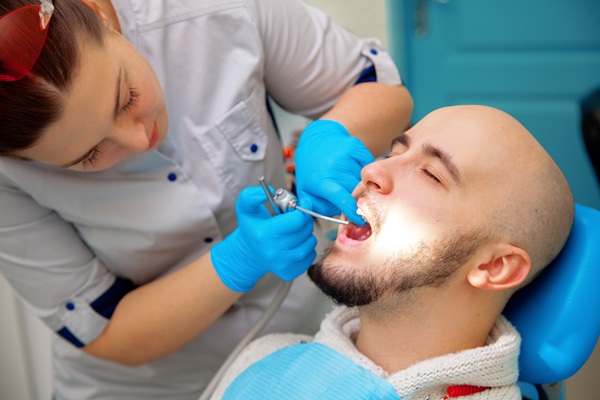Periodontics: Protecting the Gums for a Healthier Smile

A healthy smile is not only about clean, straight teeth but also about strong and well-maintained gums. Periodontics focuses on preventing, diagnosing, and treating gum-related conditions that can compromise oral health. Many prioritize their teeth while neglecting the importance of gum care, which can lead to severe complications if left unaddressed. By incorporating periodontal care into regular dental routines, you can protect your gums, preserve your natural teeth, and maintain optimal oral health.
Understanding periodontics and gum health
Periodontics is critical in dental care because it addresses issues that affect the gums and supporting structures of the teeth. Healthy gums provide the foundation for strong teeth by holding them securely in place. When bacteria accumulate along the gum line, inflammation can develop, leading to conditions compromising the gums and underlying bone. When left untreated, gum (periodontal) disease can result in discomfort, infection, and tooth loss.
Gum health is directly connected to overall well-being. A 2019 International Journal of Molecular Science article suggests a strong link between gum disease and systemic conditions like cardiovascular disease and diabetes. Further, inflammation in the gums can contribute to other health concerns, making periodontics essential. Regular visits to a dental provider ensure that they identify potential gum issues early, allowing for effective treatment before they progress into more serious conditions.
Early signs of gum disease and the need for periodontics
Gum disease often begins with mild symptoms that may go unnoticed. Early indicators include redness, swelling, tenderness, or bleeding during brushing and flossing. As gum disease advances, symptoms such as persistent bad breath, gum recession, and increased tooth sensitivity may develop. In more severe cases, the gums begin to pull away, or recede, from the teeth, creating pockets where bacteria thrive and cause further damage.
Recognizing these symptoms in their early stages allows for more effective treatment through periodontics. Minimally-invasive treatments such as deep dental cleaning, also called scaling and root planing, along with prescription antibiotics, can not only halt the progression of the disease but reverse it. Nevertheless, the most effective treatments are always going to be preventative measures and routine dental checkups to prevent the disease from occurring in the first place.
How periodontics supports long-term oral health
Periodontics care addresses existing gum issues to better promote long-term oral health. Therefore, treatments designed to manage gum disease focus on removing plaque and tartar buildup, reducing bacterial infections, and restoring the integrity of gum tissue. When necessary, more advanced procedures can help regenerate lost gum tissue and improve the stability of the teeth.
Further, a strong foundation of healthy gums is essential for any restorative or cosmetic dental work. Whether receiving crowns, bridges, or dental implants, maintaining healthy gums ensures they provide extra support for other structures in the long run. Without proper gum care, even the most advanced dental treatments may fail due to underlying periodontal concerns.
Preventing gum disease with good oral hygiene
Maintaining good oral hygiene is one of the most effective ways to promote gum health and prevent gum disease. These habits include:
- Thoroughly brushing with flouride toothpaste twice a day
- Flossing once a day
- Using an antimicrobial mouthwash
- Getting regular professional cleanings
While at-home care is essential to preventing gum disease, professional cleanings are necessary to remove the hardened plaque (tartar) and detect the signs of gum disease that may not be visible to the untrained eye.
Smoking, poor nutrition, and chronic stress can also impact gum health. For example, regular tobacco use restricts blood flow to the gums, making it harder for the body to fight infections. A well-balanced diet rich in vitamins and minerals supports the immune system and promotes tissue repair, reducing the risk of periodontal issues. By addressing these lifestyle factors and committing to regular dental visits, individuals can significantly improve the health of their gums.
Why seeking periodontal care matters
Many individuals do not seek treatment for gum disease until noticeable symptoms appear, but early invention can protect one's oral and overall health. Periodontics provides targeted care that prevents further deterioration and restores gum tissue before permanent damage occurs. Professional treatments, such as deep cleanings and gum therapies, can eliminate harmful bacteria and promote healing, improving oral health and overall well-being.
Beyond oral health, gum disease hosts bacteria that can enter the bloodstream, potentially contributing to complications such as heart disease, respiratory infections, and pregnancy-related concerns. Preventive measures through periodontics protect the teeth and gums and reduce health risks beyond oral health.
Commit to healthy gums with our help
Periodontics is an essential component of comprehensive dental care, addressing concerns that impact the gums and the entire oral structure. If you have concerns or questions about your gum health, it is time to consult a dental professional and get the treatment you need. Contact Lilburn Family Dentistry to learn more about our periodontal services or to schedule an appointment.
Request an appointment here: https://www.lilburnfamilydentistry.com or call Lilburn Family Dentistry at (770) 800-0178 for an appointment in our Lilburn office.
Check out what others are saying about our dental services on Yelp: Periodontics in Lilburn, GA.
Recent Posts
A dentist can help patients restore lost teeth with traditional dental crowns or implant crowns. Tooth loss, regardless of the cause — accident or trauma, tooth decay, or gum disease — not only affects your self-esteem, but it may also contribute to major dental problems in the future.Although both are effective for tooth restoration, there…
There are multiple options for patients who want to replace missing teeth. Dental implants are a popular choice because of their benefits; however, some patients may prefer another option.There are several tooth replacement options available to most patients. Implant surgery involves placing titanium posts in the jaw of the patient to replace missing teeth roots.…
Dental implants are a permanent solution for replacing missing teeth and restoring oral function. Patients who take the time to understand the implant process enjoy successful outcomes.A dental implant is a titanium post that a dentist anchors to the jawbone to replace a missing tooth root. After the implant successfully integrates with the jawbone, the…
One of the most popular restorations for missing teeth is dental implants. However, that does not mean that they are appropriate for every patient. Under certain circumstances, implants may be contraindicated. If you are interested in this treatment, you should discuss with your dentist whether you are a candidate.The implant procedure involves multiple steps.A rod…


